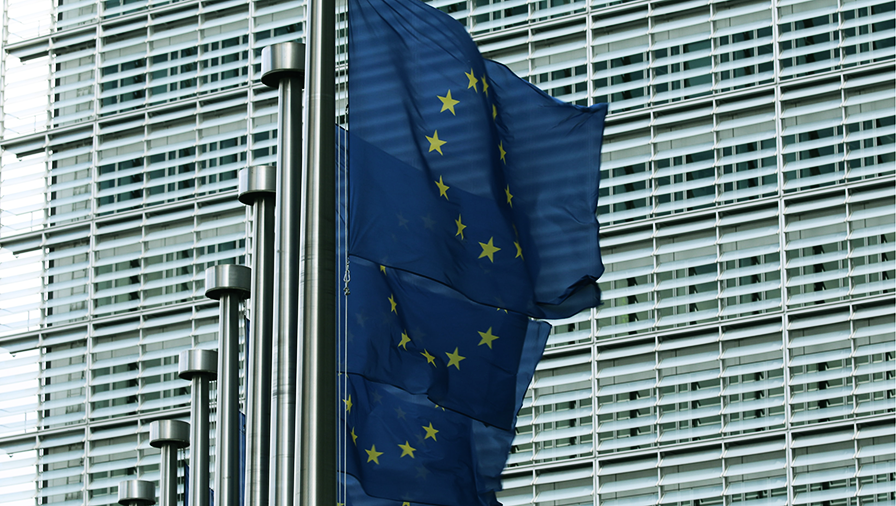
The European Commission has presented a proposal for new legislation which aims to protect journalists and media companies and combat disinformation.
On 16 September 2022, the Commission presented a proposal for a European Media Freedom Act (COM(2022) 457 final), which aims to protect media independence within the European Union and combat disinformation. The proposal consists of both a regulation and a recommendation and features, among other things, safeguards for journalists and editors, the establishment of a common European media board and rules concerning media market concentrations as well as the provision of audience measurements.
The proposal establishes media companies' right to carry out their activities without interference from Member States, which according to the proposal, must respect the editorial freedom of media companies and therefore not influence editorial decisions. Member States may not monitor, sanction, spy on or detain editors, journalists or their family members. Member States must also ensure that there are judicial remedies for complaints from editors, journalists or their family members.
In addition, the Commission proposes that media companies that provide news shall be required to be transparent about their ownership. They will also be responsible for introducing appropriate measures which ensure that editors are free to make their own decisions in the exercise of their activities and that they report any conflicts of interest that may affect published content.
The Commission further proposes the establishment of an independent European Board for Media Services. The Board shall inter alia promote the effective and uniform application of the European Media Freedom Act, provide expert opinions on the application of media legislation and provide opinions on national measures and concentrations in the media market. The tasks of the European Board for Media Services shall generally be to advise the Commission and coordinate the work against the fight against disinformation through foreign interference and information manipulation. The Board is proposed to be composed of representatives of the Member States' national regulatory authorities. Decisions are to be taken by a two-thirds majority, each member being allocated one vote. A representative of the Commission shall participate in the meetings of the Board, but without voting rights.
Furthermore, the Commission proposes that the Member States shall designate national regulatory authorities to decide on concentrations that may have a significant impact on media diversity and editorial independence. Such concentrations are to be notified to the national regulatory authorities. The proposal sets out that Member States themselves shall set out objective, non-discriminatory and proportionate criteria for determining whether a concentration will have to be notified. They shall also set out the criteria for assessing the impact of a concentration on media pluralism and editorial independence. The assessment, which shall be distinct from the competition law assessment – including under merger control rules, shall take into account, inter alia, the effects on public opinion, safeguards for editorial independence and economic sustainability. The Commission, assisted by the European Board for Media Services, may issue guidelines on the factors to be taken into account.
If a concentration may affect the functioning of the internal market, the proposal sets out that the national regulatory authority concerned must consult the Board in advance on any opinion or decision. The national regulatory authority shall take utmost account of the opinion of the Board and if it does not follow the opinion, it must provide a reasoned justification. The Commission may issue its own opinion. The Commission further proposes that if a national regulatory authority does not carry out an assessment or consult the European Board for Media Services, the Board shall anyway, upon request of the Commission, draw up an opinion, if the concentration concerned is likely to affect the internal market for media services. Again, the Commission may, following the opinion of the Board, issue its own opinion. The opinions of the Board and the Commission shall be published.
The Commission also proposes an information obligation for companies that provide audience measurements. Audience measurement includes collecting, interpreting or otherwise processing data about users of media services related to advertising allocation, pricing, planning, production or distribution of content. The proposal states that providers of audience measurements are obliged to provide media companies and advertisers with clear, detailed and comprehensible information about which methods are used when providing the services.
The European Parliament and the Council will now discuss the proposal within the framework of the ordinary legislative procedure. In parallel, the Swedish Ministry of Culture will present a memorandum on the proposal to the Swedish Parliament. It is currently difficult to foresee when the European Media Freedom Act could be adopted. Once adopted, most of the provisions are foreseen to apply six months after entry into force of the Act.
The reactions to the proposal have been varied. For example, the Swedish organization Tidningsutgivarna, together with the umbrella organization News Media Europe, consider that the proposal risks having negative consequences for press freedom, in particular in light of the concentration rules and the establishment of the European Board for Media Services. On the other hand, the European Federation of Journalists has welcomed the proposal and has expressed a wish for further regulation at EU level in terms of ownership transparency, source protection and measures against surveillance of journalists.